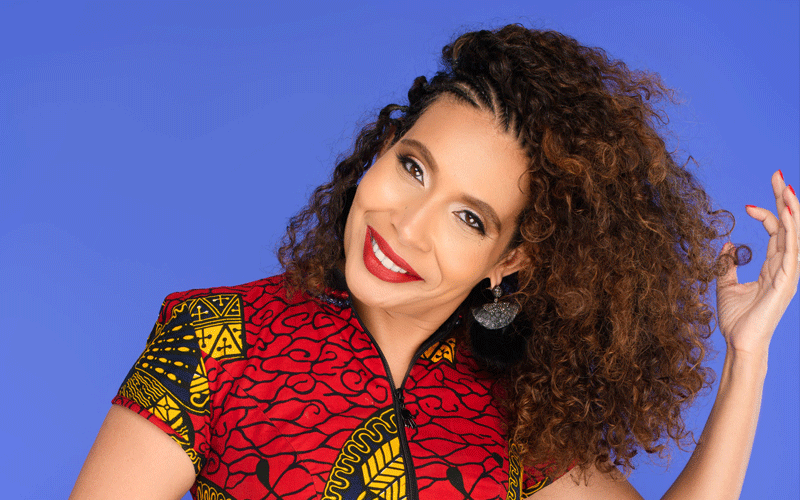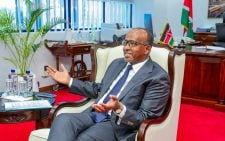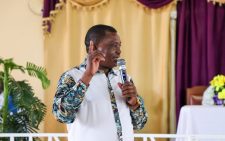How I turned soap into a tool against ailments

For the last 20 years, Dr Myriam Assa Sidibe has been waging a war on diseases such as diarrhoea and pneumonia that claim millions of lives every year.
The weapon of choice for Sidibe, a public health expert and the co-founder of the Global Hand-washing Day is bar of soap.
In a Ted Talk she gave in 2014 on the Simple power of handwashing; Sidibe, a Mali national who has been living in Kenya for the past decade, made a case for a bar of soap and how it can save lives, without the need for sophisticated innovations.
Viable intervention
“Imagine a plane is about to crash with 250 children and if you knew how to stop it, would you? Now imagine 60 planes full of babies under five crashing everyday.
That is the number of children that never make it to their fifth birthday. Estimated 6.6 million children never make it to their fifth birthday globally.
Most of the deaths are preventable, this doesn’t only make me sad but angry,” she said.
Her campaign has morphed into a global movement that has changed hand-washing behaviour for over a billion people and is now recognised by the United Nations as the Global Hand-washing Day and celebrated in more than 100 countries.
As the world marks the day today, Sidibe; traces the path she has walked for two decades, to ensure hand-washing claims its space in the public health discourse.
“I worked for a few years in refugee camps in Burundi and Rwanda I became very frustrated that no one was using the toilets and handwashing facilities.
I went back to school to do a doctorate in public health at the London School of Hygiene and Tropical Hygiene and I focused on behaviour change and how to get people use these facilities,” she saidShe added: “At the time, my supervisor had just published an article in the Lancet on hand-washing with soap and the impact on public health and she had some money to do some research on hand-washing, among children.
So she basically gave me some money as a stipend, to go and do research in Senegal and East Timor looking at handwashing motivation for children.”
When she came back in 2006, Unilever — the company that funded the research offered her a job and she spent 15 years in marketing, trying to promote hand washing with the firm’s soap brands.
This eventually led to the launch of the Global Handwashing Day in 2008 in partnership with other stakeholders, to raise the profile of handwashing as a viable intervention for public health.
The outbreak of the Covid-19 pandemic has given the campaign a new lease of life, because washing hands and wearing a mask, are viewed as the best way to curb the virus spread.
Sidibe has capitalised on the partnerships between governments and private firms, to propel the campaign to new heights, especially during this pandemic period.
As the chair and co-founder of The National Business Compact on Covid-19, Sidibe has worked towards ensuring the business community in Kenya gives the government adequate resources in the fight against the current pandemic.
In the last seven months, the coalition has raised over Sh651 million ($6 million), conducted campaigns that have reached 15 million people, set up more than 5, 400 handwashing stations in Kenya and distributed hundreds of masks and soap.
“I believe that hygiene is the foundation of public health and for me this is the foundation of social justice,” she said in an interview with the People Daily.
The author of the book Brands on a Mission- Achieving Social Impact and Business growth through Purpose, officially left Unilever last week.
She started her company, Brands on a Mission that seeks to help firms integrate social missions at the heart of the business strategy.
“ It makes a lot of sense for businesses to help change their communities and it helps in authenticity and creativity, and drive differentiation from other competitors.
We are showing them a model to make money and do good at the same time,” she said.
Social mission
For her efforts, Sidibe has been recognised as the top 10 entrepreneurs in the world.
Her Lifebuoy’s social mission has been replicated across Unilever, as the best practice examples for brands, looking to positively impact the world while driving market share.
She is a trustee of WaterAid, the world’s largest civil society organisation on water and sanitation and a commissioner for the Lancet on the future of health in Africa.
She is also a contributor to the Financial Times, NY Times, Forbes, Harvard Business Review and Lancet.
She co-created a first of its kind course in 2019 called “Together For Nutrition” with Lawrence Haddad, chief executive Gain, and bringing leaders from the public sector and private sector to reflect on various business models that will change the current food crisis.
Her book, published in May this year, is currently the best selling business ethics book. She is also a senior fellow at the Mossavar-Rahmani Centre for Business and Government at Harvard Kennedy School.
Sidibe said she draws the inspiration to make a difference from her four children.
“My children deserve a better world to live in,” she said.
When she is not working, Sidibe who is married to a Cote d’Ivoire national-who runs a French bakery in Nairobi, spends her time playing tennis or dancing.












